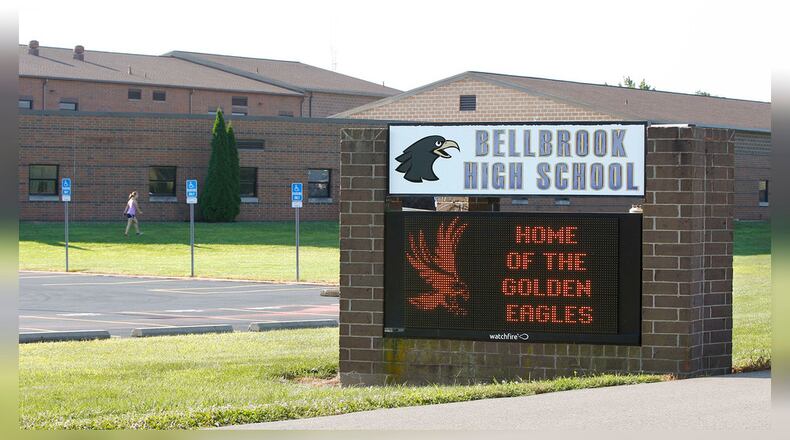“It’s up to the school district to determine and say we need X amount of money, and it’s up to the community to either say yes or no,” Cozad said. “I find it challenging to not give people the opportunity (to vote).”
Local resident John Stafford, who has led a vocal “Vote No” movement, said the school district is not listening to its residents. He said he’s lobbying state legislators for a limit on the number of times a levy can be brought.
“You cannot keep on doing this,” Stafford said. “At some point the results of the election have to be accepted.”
May 4 levy details
Cozad said some community members asked for a change to a non-permanent, less-expensive levy this time. So the May 4 ballot measure is a 7-year, 4.9-mill levy, which would raise $3.22 million a year and cost the owner of a $100,000 home an additional $171.50 annually. That’s $28 less per year than November’s levy request, which was rejected by a 53-47 ratio.
The school board agreed last month that if the levy passes, previous cuts would be reversed in only three areas. Two librarians would be hired so that all school libraries would once again be open every day. STEM classes for students in kindergarten through fifth grade would be reinstated by hiring one teacher for that role.
If the levy is rejected, 2-3 teaching positions will go unfilled this summer, and another levy is possible in November.
And the return of 31 small supplemental contracts (often a few thousand dollars each) would bring back advisors so that certain canceled clubs and activities (like a spring play or sports team) can resume.
Other than that, district operations would stay the same, with the additional funding intended to prevent the schools from running out of money. Bellbrook’s five-year financial forecast currently projects that to happen in the 2023-24 school year.
The district has touted $4.8 million in budget cuts, but the forecast shows those cuts have been offset by increases in other areas, with district general fund spending staying flat at $29.8 million in 2018-19, 2019-20 and this year. Revenues have been lower, averaging $29.1 million in those three years.
District staff took a pay freeze for 2020-21, and Cozad said negotiations have not yet begun with the teachers union, whose contract expires this summer.
Facts and accusations
Stafford has made numerous accusations against the school district, including a complaint that the schools violated Ohio’s “Sunshine Law.” The school district said that was false, but a judge eventually ruled the school district had violated open meetings law in 2018 and 2019.
Another recent Stafford complaint argues that the schools illegally used district resources to campaign for past levies. Cozad acknowledged that state auditors are talking to district officials about that second complaint, but he would not go into detail.
“Anybody can report anything … whether it’s true, accurate or not accurate,” Cozad said. “Then it’s up to the auditor’s office to look into it.”
Auditor of State spokeswoman Allie Dumski said only that “It is our policy not to discuss ongoing work until it is completed.”
On other occasions, Stafford’s claims have been false. He said a January 2020 state performance audit of Bellbrook-Sugarcreek schools was a “scathing rebuke” of district financial management.
Performance audits make recommendations on how a district can reduce costs, and this document did that. But it also said the district’s budget cuts had been a “noteworthy accomplishment,” that Bellbrook had kept staff pay lower than its “peer districts,” and that local residents’ school tax burden was lower than in comparable communities.
School board member Kevin Price pointed out that Stafford’s social media post about the performance audit changed the state’s answers in nine places. On topics such as whether the district’s staffing and purchasing were efficient, or whether salaries were comparable to peers, the state answered that it was making “no recommendation.” But Stafford’s post changed the state’s answers to just the word, “No,” implying that purchasing was not efficient, and that salaries were not comparable.
Stafford said he stands by the information he’s put out. Price has repeatedly called him a liar.
Future of district
Cozad says if the levy passes, he’ll generally be comfortable with the education and services the district can provide in the coming years. But he said long-term planning is difficult with the state legislature still trying to decide on a K-12 school funding plan. He suggested results of the last two levies may have been skewed by fears over COVID’s effect on the economy.
“At some point the community needs to decide what kind of school district they want,” Cozad said. “Do they want one that has a lot of great, robust programs or one that’s trending toward state minimums?”
Stafford argues the community has already made their feelings clear the past two years, and that teacher and staff wages and benefits should be reduced.
“They’re willing to cut services for the children, like busing ... that never should have been cut,” Stafford said. “These programs they cut for the students are a very small (dollar) number. … You look at the largest line item you have, and that’s your wages and benefits. That’s what should have been addressed first.”
About the Author

